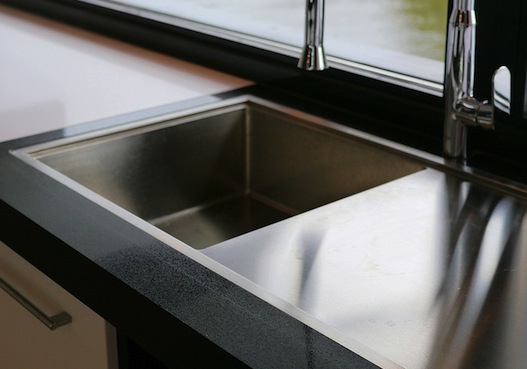Quartz worktops, often referred to as composite worktops, have gained huge popularity in today’s kitchen designs. Available in a vast range of colours and finishes Silestone worktops alone come in a selection of 71 different options) these materials are not only highly attractive and will suit just about any design and colour scheme, but they are also extremely hard wearing.
The natural stone granulates (from which quartz worktops are made) are quarried in prime locations around the world to ensure consistently high quality and account for between 92 and 97 per cent of the finished material.
These particles are bound with a minimal quantity of high quality acrylic resin, resulting in the extreme scratch, chip, heat, moisture and stain resistance provided by these worktops.
Varying pigments are added to provide the broad range of available colours, while the addition of other materials in varying shapes, colours and sizes serves to create the wide range of finishes. These materials may consist of pebble or quartz fragments, glass or other mirror-like elements.
The Blanco Arco Iris finish in the range of Quarella worktops, for instance, owes its ‘Tutti Frutti’ like appearance to the addition of bright yellow, orange, red, green and blue quartz pieces to a creamy-white base. In Beach Africa, one of the many finishes of Diresco worktops, a warm, natural stone appearance is achieved by the addition of pebble fragments in colours complimenting the base colour, rather than contrasting it. Because it is not possible to determine the exact positioning of fragments within the material during the mixing process, each worktop also remains totally unique.
In addition to their hard wearing qualities and attractive finishes, composite worktops also require only the bare minimum as far as maintenance goes. These surfaces, unlike most natural stone tops, do not require resealing at any point during their lifetime. Their elegant sheen can be maintained for many years by simply wiping them down using nothing but water and a mild detergent, and there is no need to polish them afterwards.

